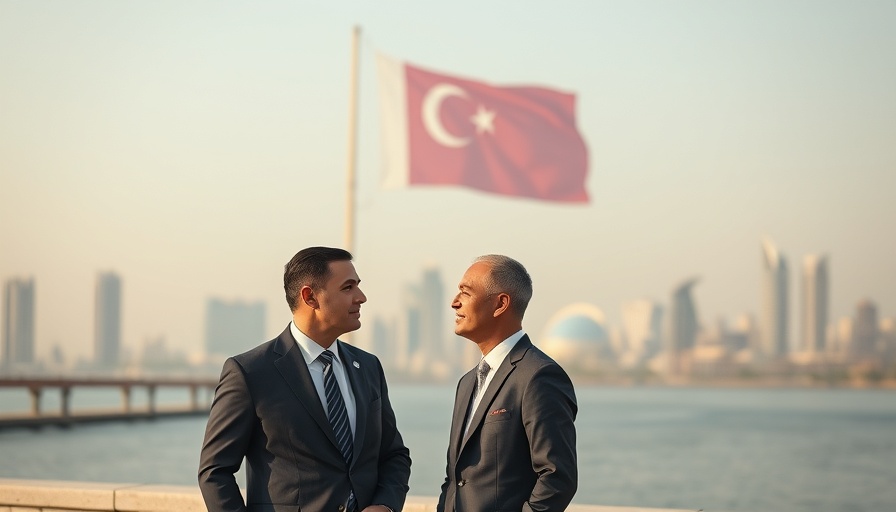
Understanding Qatar's Position in the Middle East
As tensions rise in the Middle East, the influence of small nations like Qatar takes on a critical role. Following Israel's recent military actions against Hamas in Doha, many are left wondering what options Qatar has available. With limited military capabilities, Qatar finds itself in a precarious situation but is nonetheless a pivotal player in regional geopolitics.
The Limits of Military Action
Qatar's military capabilities are constrained, making overt military action against Israel a risky proposition. Any attempt to escalate the conflict through military means could lead to severe repercussions not just for Qatar but for the entire Gulf region. Using political pressure and diplomatic channels may be avenues more likely to yield results than direct confrontation.
The Role of Diplomacy and Proxy Influence
Despite its limitations, Qatar holds influential ties that can serve as leverage in negotiations. The country has long supported Hamas and has acted as a mediator in previous conflicts. This position allows Qatar to navigate complex alliances and perhaps encourage dialogue between opposing sides in the region.
Public Perception and Regional Reactions
While some Arab leaders may publicly seem supportive of Qatar, private sentiments could be quite different. Many countries in the region view Qatar's support for Hamas with wariness. Behind closed doors, these leaders may express a mix of jealousy and concern regarding Qatar's political maneuverings, as they might be wary of the repercussions that could arise from their own stances.
Potential Consequences of Inaction
If Qatar defaults on action following Israel’s recent strike, it could face internal pressures to redefine its foreign policy agenda. Many citizens and political factions within the country might demand a stronger response against perceived aggressions, potentially complicating Qatar’s diplomatic relations.
Future Predictions and Opportunities
Looking forward, the dynamics of the Middle East could shift dramatically. As countries reassess their alliances and strategies in the wake of the latest events, Qatar may find opportunities to establish hegemony within Gulf politics. By taking a moderate stance, Qatar could cultivate a unique position that allows it to serve as intermediary and stabilizer in the region.
Conclusion: A Call for Global Understanding
As events unfold in the Middle East, it’s crucial for global citizens, especially faith-based communities, to engage with these complexities. Understanding the role of nations like Qatar goes beyond politics — it connects to larger humanitarian and social justice themes that impact people of faith, particularly within vulnerable communities. A more informed engagement can empower believers to advocate for peace and reconciliation in the region.
 Add Row
Add Row  Add
Add 








Write A Comment